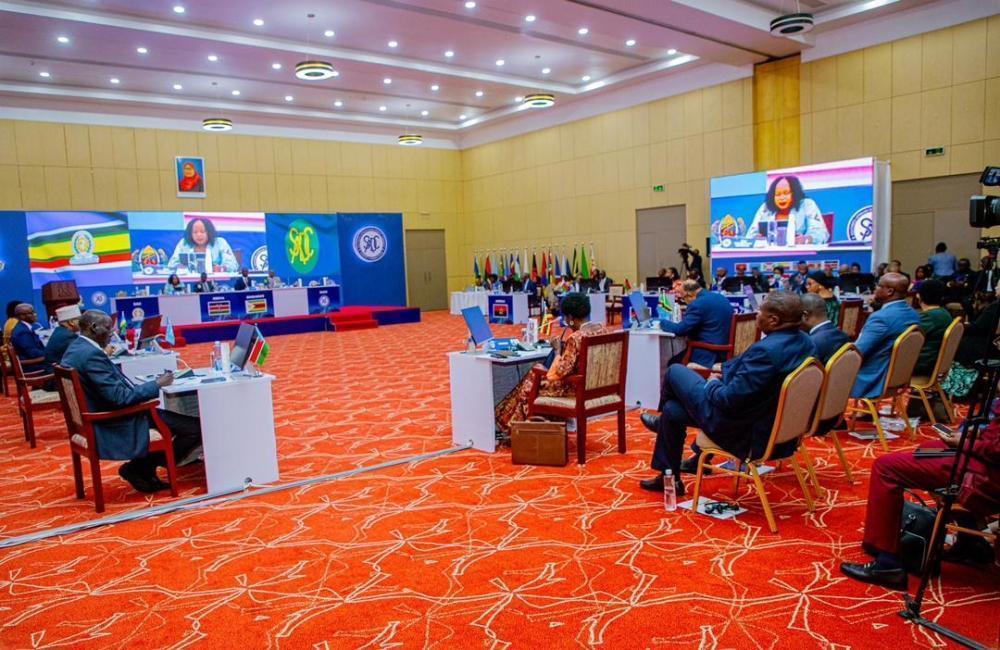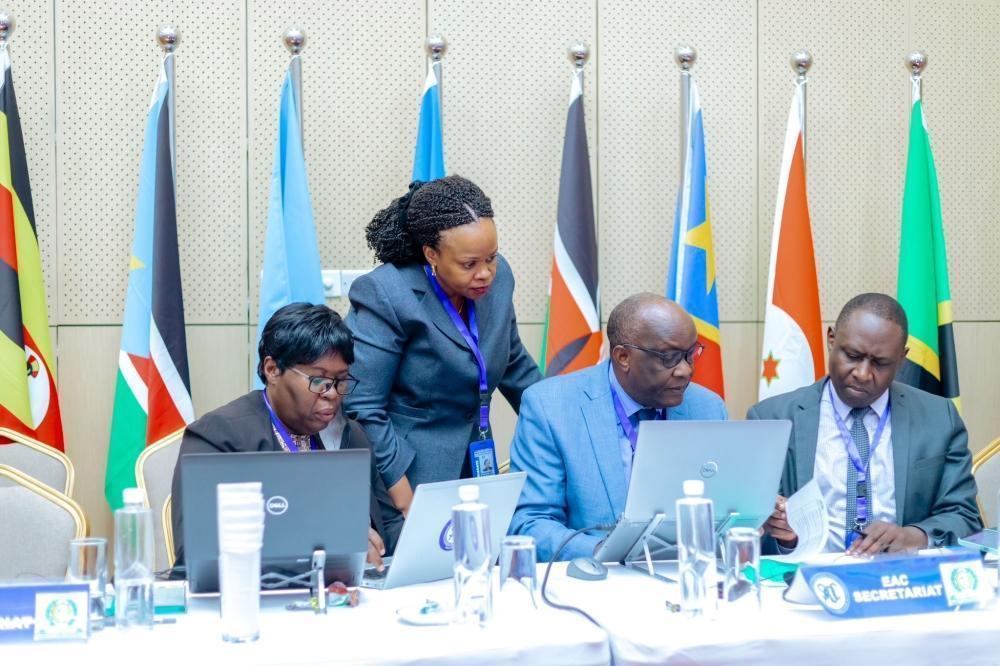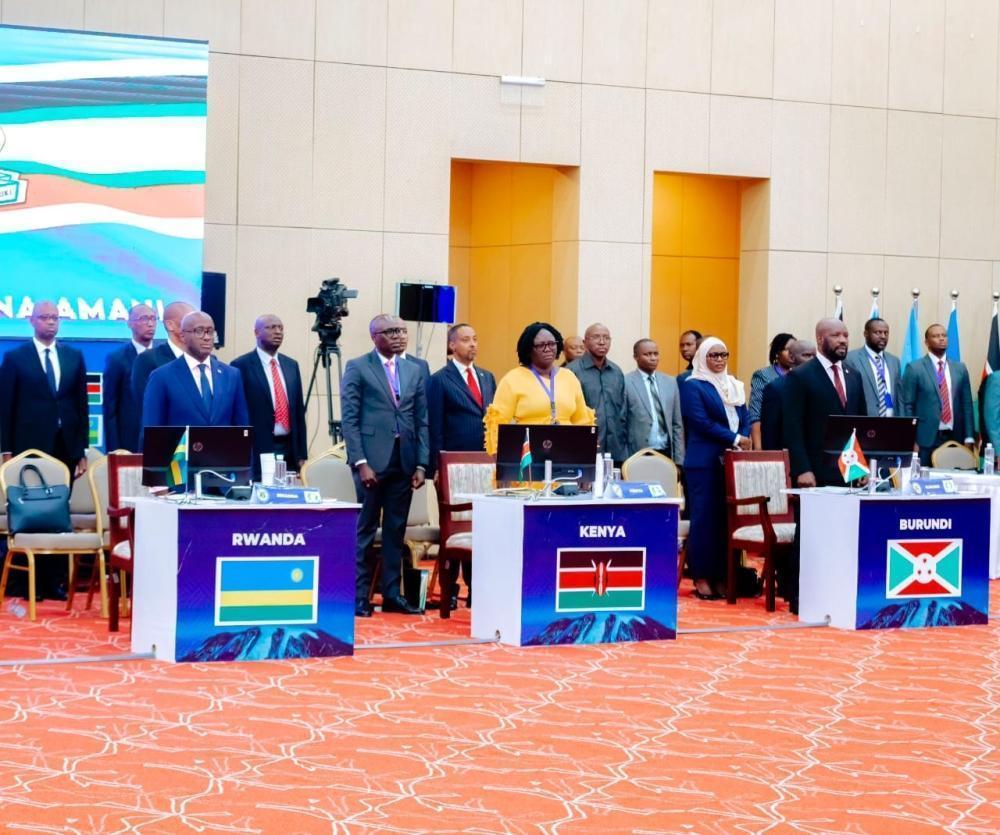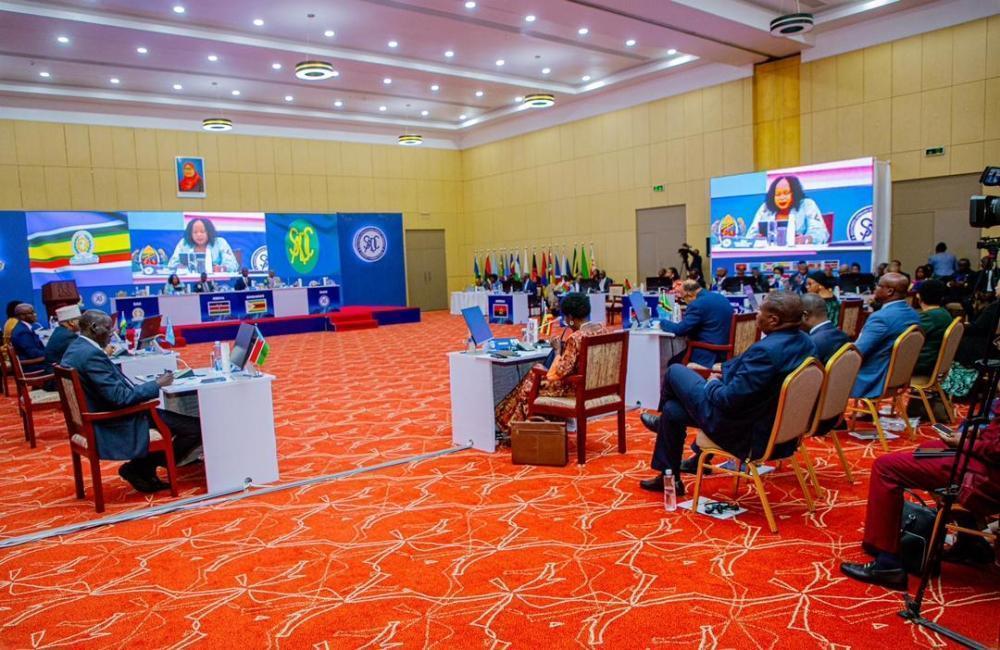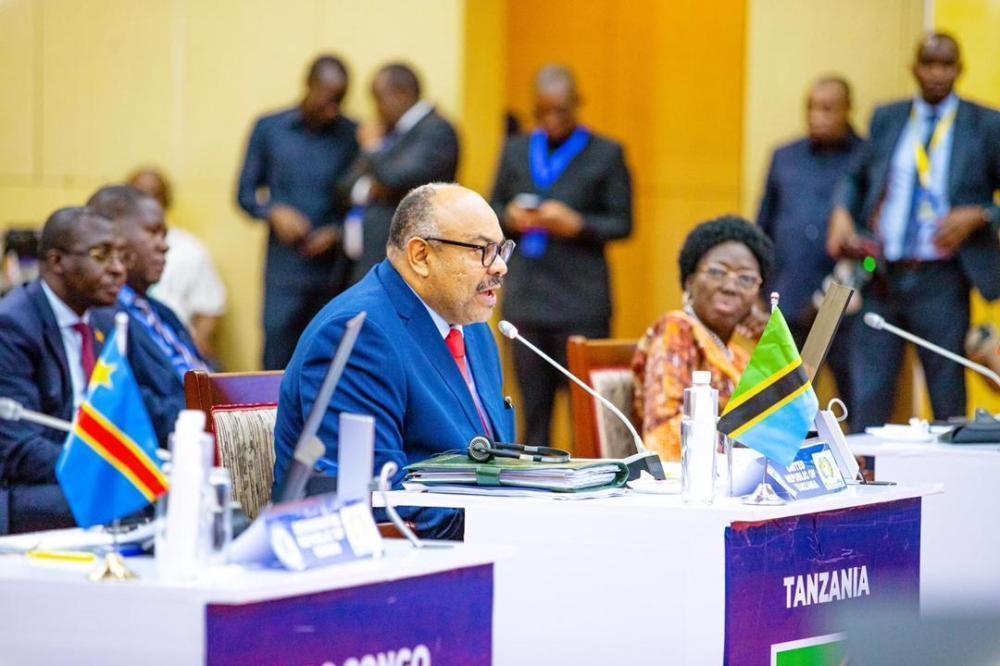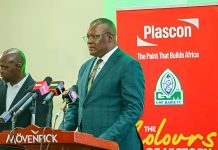Africa-Press – Kenya. East African Community and Southern African Development Community ministers on Friday, February 7, agreed to the implementation of a concept of operations to neutralise a Rwandan genocidal militia group based in eastern DR Congo and called upon Kinshasa to hold direct talks with the AFC/M23 rebels so as to resolve the conflict raging in the country’s east.
The ministers from the two blocs met in Dar es Salaam on Friday, February 7, to talk about ways to bring an end to the escalating security situation in eastern DR Congo. Their meeting preceded that of the heads-of-state that took place on Saturday, February 8.
At the onset, during their opening remarks before they started a closed session, some leaders from the two regional blocs called for an immediate cessation of hostilities and taking positive action to allow meaningful dialogue so as to end the escalating insecurity in eastern DR Congo.
A communique issued by Kenya’s State Department for Foreign Affairs which co-chaired the ministers’ meeting, pointed out things that were agreed upon. These are to be implemented within various timelines ranging from short to long term. Among the measures that are to be worked on “immediately,” is the “implementation of the Concept of Operations (CONops) of the harmonised plan for the neutralisation of FDLR,” as well as engagement in dialogue with non-state parties including M23.
The ministers also agreed on a cessation of hostilities and unconditional ceasefire, noting that it must be respected by all state and non-state parties, and will be monitored by the joint EAC-SADC chiefs of defence.
“To facilitate implementation of the immediate interventions, a joint meeting of EAC SADC Chiefs of Defence will be convened within five days to provide technical guidance on the ceasefire negotiations and other outlined facilitative interventions,” the communique read.
The escalating war between a Congolese government army coalition that includes FDLR, a DR Congo-based terrorist militia founded by remnants of the masterminds of the 1994 Genocide against the Tutsi in Rwanda, over 10,000 Burundian troops, 1,600 European mercenaries, thousands of Congolese militia elements grouped in what is called Wazalendo, and South Africa-led SADC forces, against M23 rebels started in 2021.
M23, a rebel movement initial fighting for the rights of a persecuted Congolese community in the country North Kivu Province, is now a member of a larger rebel coalition, Alliance fleuve Congo (AFC), created in December 2023, that is fighting for governance that supports basic human rights, secures all Congolese citizens, and addresses the root causes of conflict. Its leaders have vowed to uproot tribalism, nepotism, corruption, and genocide ideology, among other vices, widespread in DR Congo.
On January 27, the AFC/M23 rebels captured Goma, the capital of eastern DR Congo’s North Kivu Province, after a 48-hour deadline they imposed for the Congolese army and its coalition to surrender expired.
They moved on to consolidate their power in the city and the entire province, establishing new administration structures, and executing plans to ensure that internally displaced people return to their villages which are now secure. On February 5, the rebel alliance appointed new leaders for North Kivu Province, saying there was “a need and urgency to organize the territorial administration in the Democratic Republic of Congo.”
The ministers also called for the reopening of Goma airport, and main supply routes for the delivery of humanitarian assistance, the development of a securitisation plan for Goma and surrounding areas, and the immediate repatriation of the remains of the deceased and injured foreign soldiers.
Confidence building for dialogue
The EAC and SADC ministers pointed out that there should be implementation of confidence building measures including state and non-state parties unconditionally committing to inclusive dialogue as the means of addressing the conflict in eastern DR Congo.
Urgent resumption of the EAC-led Nairobi Process and enhancement of structural coordination and complementarity with the Luanda process were also emphasised, in addition to discouraging “inflammatory rhetoric and other actions in the region that cause cleavages among communities.”
For the medium term, the ministerial meeting agreed on the commencement of a comprehensive search for solutions to the underlying causes of the conflict through political dialogue, as well as the establishment of a joint EAC-SADC political and security technical team to coordinate the implementation of the decisions of joint meetings.
Friday’s meeting was attended by ministers from Kenya, Zimbabwe, Uganda, Tanzania, Angola, Burundi, Somalia, Rwanda, South Africa, South Sudan, Zambia, Malawi, and DR Congo.
For More News And Analysis About Kenya Follow Africa-Press

